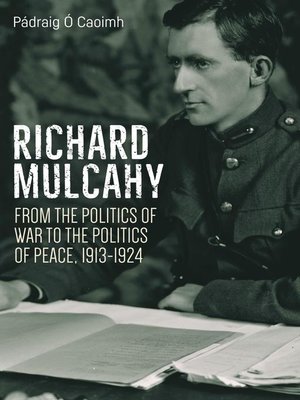Richard Mulcahy
ebook ∣ From the Politics of War to the Politics of Peace 1913–1930
By Pádraig Ó Caoimh

Sign up to save your library
With an OverDrive account, you can save your favorite libraries for at-a-glance information about availability. Find out more about OverDrive accounts.
Find this title in Libby, the library reading app by OverDrive.



Search for a digital library with this title
Title found at these libraries:
| Library Name | Distance |
|---|---|
| Loading... |
Chief of Staff of the IRA, successor to Michael Collins as Commander in Chief of the National Army, founding member of Cumann na nGaedheal and later leader of Fine Gael: Richard Mulcahy was a leading figure in revolutionary Ireland and the new Irish State. But who was the enigmatic man behind the myth? Conspiratorial IRB nationalist; stubborn military tribune; pragmatic, political officeholder; or a fascinating combination of these and other traits?
In Richard Mulcahy: From the Politics of War to the Politics of Peace, Pádraig Ó Caoimh expertly explores the awkward, often competitive, relationships Mulcahy had with Brugha, Cosgrave, de Valera, O'Higgins and Stack, and investigates the forging of the Irish national army out of the furnace of change brought about by the rise of militarism, a mismanaged rebellion and two wars, one of liberation, the other of brothers. This long overdue new biography also reveals the ambiguous role of the IRB, and the strategically important military and political executive positions that Mulcahy occupied during the post-rebellion, army-building and state-building phase of 1917–24.
This extensively researched new study of Richard Mulcahy and the struggle for supremacy concerning the post-revolutionary government-army relationship is a vital contribution to understanding Ireland's revolutionary past.







